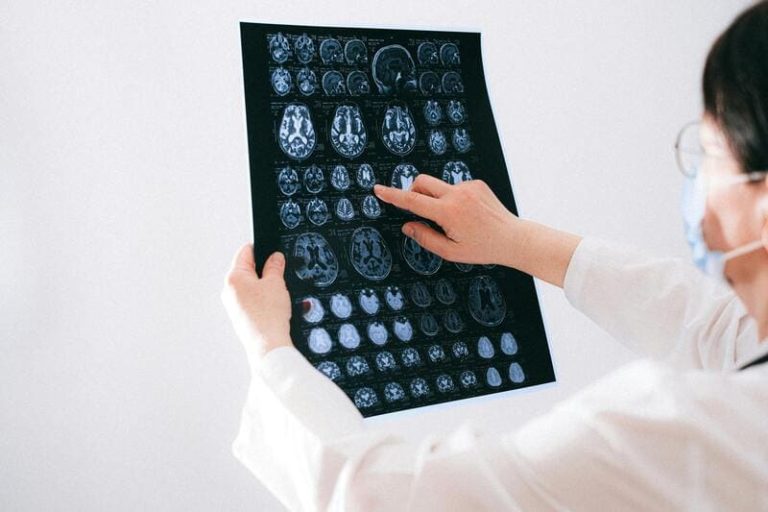Dreams have baffled humans since the beginning of time. The images we see when we sleep can confuse us, frighten us, and even shock us. There have been many theories over the years as to why we dream. There’s also the question of why we remember some of them, but not others. Are we any closer to finding out the answers to these questions? The answer is yes.
In this article, we will discuss new information from a recent study that shows the reason why we may remember some of our dreams, but not others. The results from this study are truly amazing.
We will also discuss what a famous neurologist and his student had to say about this subject.
Join me on this journey as we explore this fascinating phenomenon.
Dreams: Sigmund Freud and Carl Jung
Why do our brains create stories and images while we are sleeping? Scientists and doctors have pondered over this question for centuries. The well-known neurologist, Sigmund Freud, had a theory on the matter.
In the late 1800s and early 1900s, Sigmund Freud developed the technique of psychoanalysis. Many of his studies focused on man’s unconscious mind. He believed that our dreams are a pathway to our unconscious mind, and that by analyzing them, insight could be gained about a person’s motivations and wishes.
However, one of Freud’s students, Carl Jung, had a different theory. He believed that our dreams are manifested as a way to bring resolution and closure to mental and emotional issues that existed that day. So basically, he believed that our brain creates these stories as a way to cope with psychological disturbances. That’s a very interesting theory.
Let’s now discuss a more modern theory.
The Activation-Synthesis Hypothesis
Advancement in technology has brought about some interesting new theories about this topic. One is called the activation-synthesis hypothesis. This theory states that dreams mean absolutely nothing and that they are simply electrical brain impulses. These impulses are believed to pull random thoughts and images from our memory.
This theory further suggests that humans themselves actually create the stories after they are awake, in an attempt to make sense of the dream. Many professionals, however, strongly disagree with this theory.
Now let’s get to some new and exciting information about dreams!
A New Study With Fascinating Results
The Journal of Neuroscience recently published new insights concerning the strong relationships that dreams have with our memories. Cristina Marzano and her colleagues at the University of Rome have, for the first time, succeeded in explaining why humans remember some of their dreams, but not others.
These scientists predicted the likelihood of the successful recollection of a dream based on a specific pattern of brain waves. This research team had 65 students spend two nights in their research laboratory. They used an electroencephalography (EEG) to measure the students’ brain waves during the five different sleep stages.
By documenting the brainwave patterns of those who successfully remembered their dreams, the scientists were then able to predict with accuracy who else would remember theirs. Therefore, this study proved to be very significant, but these scientists didn’t stop there.
In Your Wildest Dreams
The same research team conducted another study that produced information about bizarre, vivid, and emotionally intense dreams. They found that these types are linked to the parts of the brain called the amygdala and hippocampus. Interestingly, the amygdala is hugely responsible for processing emotional reactions. This indicates that our vivid, bizarre dreams are directly linked to our emotions. Amazing.
Sander Van Der Linden, the Professor of Psychology at the University of Cambridge, discussed the results of this research. He concluded, “Dreams seem to help us process emotions by encoding and constructing memories of them.” He continues, “What we see and experience in our dreams might not necessarily be real, but the emotions attached to those experiences certainly are.” So is he saying that these emotions need to be processed and that our brains provide this processing by creating dreams? Incredible!
He goes on to say, “This mechanism fulfills an important role because when we don’t process our emotions, especially negative ones, this increases personal worry and anxiety.” So, let’s break this down. We can conclude that essentially, our brains are taking care of our psychological needs by creating these stories in order to process negative emotions. Wow. This is where the mental health link comes in. Without processing these emotions, our mental health is at risk. Our professor explains this further.
Reflecting on the fact that most dreams occur during the REM cycle of sleep, he says, “Severe REM sleep-deprivation is increasingly correlated to the development of mental disorders.” That makes total sense. If we don’t dream, we cannot process the emotions we need to process and this can lead to mental disorders. To put it simply, there are unprocessed emotions that need to be processed!
The professor says that “Dreams help regulate traffic on that fragile bridge which connects our experiences with our emotions and memories.” So, the next time you dream, think about what you learned today. Remember that when you sleep, your brain is working hard to process many emotions that you may not have even realized you had. Although some dreams may be unpleasant, having them may be necessary for your mental health and overall well-being.
For More Great Content:
Total Apex is an all-encompassing content producer. We provide heavily detailed articles every day on entertainment, gaming, sports, and so much more! Check out all our great sports content Total Apex Sports. Check us out on X @TotalApexEandG and our other sites: Total Apex Sports Bets and Total Apex Fantasy Sports











